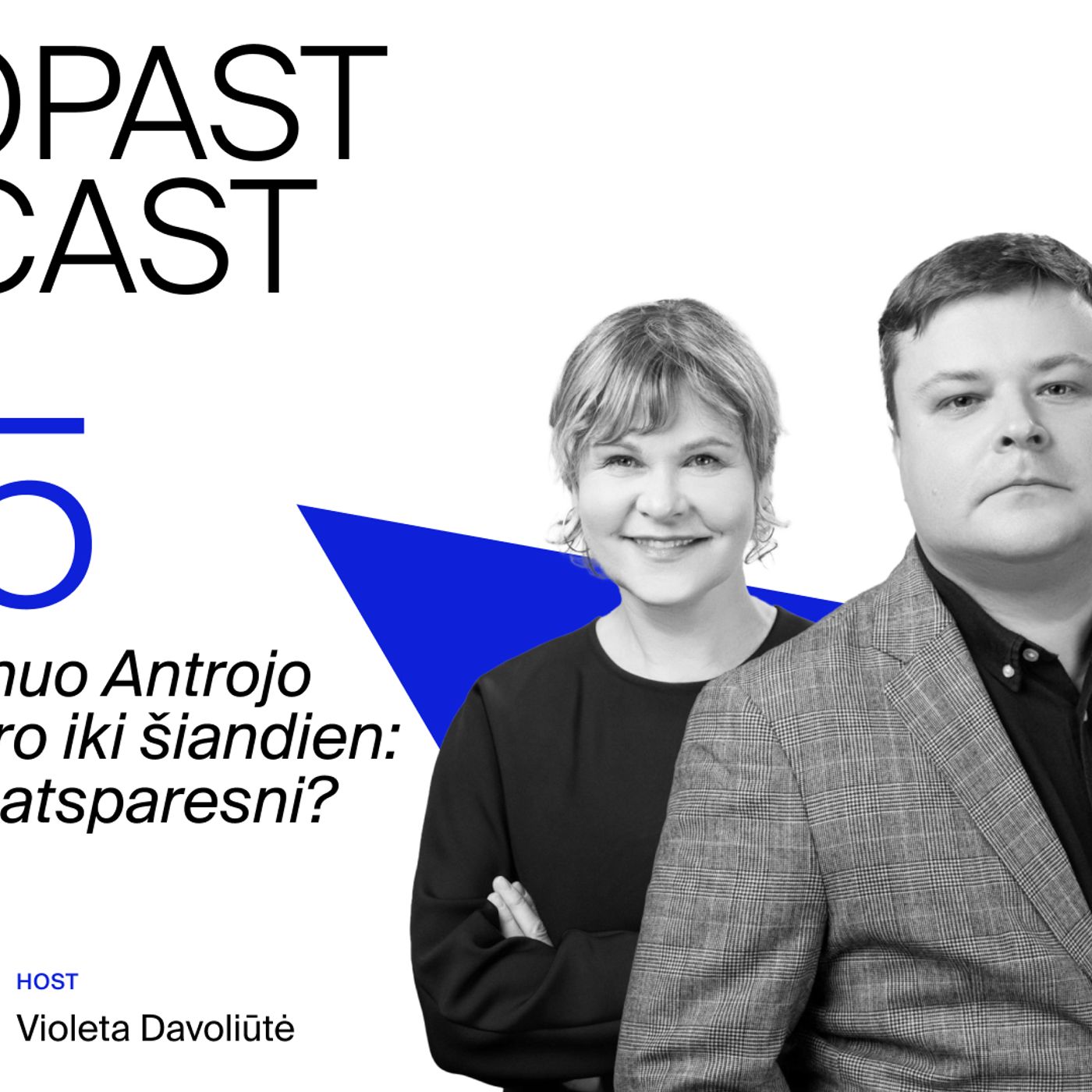Europast

Europast
Podcast Description
In the EUROPAST Podcast, we explore Europe's most pressing challenges of public history. We investigate the complex and contested spaces of public memory, memory activism and best practices for engaging the public in a dialogue about the past.EUROPAST is an EU-funded network focused on producing valuable research on public history and building capacities in academic institutions (Grant Agreement No. 101079466). EUROPAST brings together four international academic partners: Vilnius University (Lithuania), the Leibniz Centre for Contemporary History in Potsdam (Germany), the Centre for European Studies at Lund University (Sweden), and the Centre for Contemporary and Digital History (Luxembourg).
Podcast Insights
Content Themes
The podcast focuses on themes such as public memory, participatory history, and the ethical implications of historical representation, with episodes exploring topics like the power of participation in documenting Ukraine's struggles, and the complexities of curating exhibitions around sensitive historical narratives.

In the EUROPAST Podcast, we explore Europe’s most pressing challenges of public history. We investigate the complex and contested spaces of public memory, memory activism and best practices for engaging the public in a dialogue about the past.
EUROPAST is an EU-funded network focused on producing valuable research on public history and building capacities in academic institutions (Grant Agreement No. 101079466). EUROPAST brings together four international academic partners: Vilnius University (Lithuania), the Leibniz Centre for Contemporary History in Potsdam (Germany), the Centre for European Studies at Lund University (Sweden), and the Centre for Contemporary and Digital History (Luxembourg).
[English below]
Svečiuose: Stanislovas Stasiulis
Epizodo vedėja: Violeta Davoliūtė
Šiame epizode EUROPAST projekto komandos vadovė Violeta Davoliūtė su istoriku Stanislovu Stasiuliu kalbasi apie propagandą, visuomenėse gajų sentimentų pasitelkimą politiniams tikslams ir atsparumą dezinformacijai šiuolaikiniame pasaulyje.
Kaip atrodė propaganda Lietuvoje Antrojo pasaulinio karo metais? Kuo panašūs Sovietų Sąjungos ir nacistinės Vokietijos naudoti propagandos metodai? Kokios skirtingos technologijos buvo naudojamos įvairiose okupuotose Rytų Europos šalyse? Ar šiandien esame atsparesni propagandai?
____
EUROPAST tinklalaidė nagrinėja karščiausias Europos visuomeninės istorijos problemas. Joje tyrinėjame kompleksiškas ir ginčytinas viešosios atminties erdves, atminties aktyvizmą ir gerąsias visuomenės įtraukimo į dialogą apie praeitį praktikas.
Ši tinklalaidžių serija yra EUROPAST projekto, finansuojamo Europos Sąjungos lėšomis (sutartis Nr. 101079466), dalis. Daugiau: www.europast.vu.lt
Muzika: Istok Zapad, Whiteheads. ℗ Croatia Records, 2021.
——————————————————————————————————
Episode 15: Propaganda from the Second World War to today: are we more resilient yet? [In Lithuanian]
Guest: Stanislovas Stasiulis
Host: Violeta Davoliūtė
In this episode, EUROPAST project lead Violeta Davoliūtė speaks with historian Stanislovas Stasiulis about propaganda, the exploitation of prevailing societal sentiments for political goals, and whether we are more resilient to disinformation in the modern world.
What did propaganda look like in Lithuania during the Second World War and its aftermath? How similar were the methods used by the Soviet Union and Nazi Germany in Lithuania? What different technologies were employed across various occupied Eastern European countries? Are we more resilient to propaganda today?
____
In the EUROPAST Podcast, we explore Europe’s most pressing challenges of public history. We investigate the complex and contested spaces of public memory, memory activism and best practices for engaging the public in a dialogue about the past.
The podcast series is part of a project that has received funding from the European Union under the WIDERA programme (EUROPAST project, Grant Agreement No. 101079466). More: www.europast.vu.lt
Music: Istok Zapad, Whiteheads. ℗ Croatia Records, 2021.

Disclaimer
This podcast’s information is provided for general reference and was obtained from publicly accessible sources. The Podcast Collaborative neither produces nor verifies the content, accuracy, or suitability of this podcast. Views and opinions belong solely to the podcast creators and guests.
For a complete disclaimer, please see our Full Disclaimer on the archive page. The Podcast Collaborative bears no responsibility for the podcast’s themes, language, or overall content. Listener discretion is advised. Read our Terms of Use and Privacy Policy for more details.